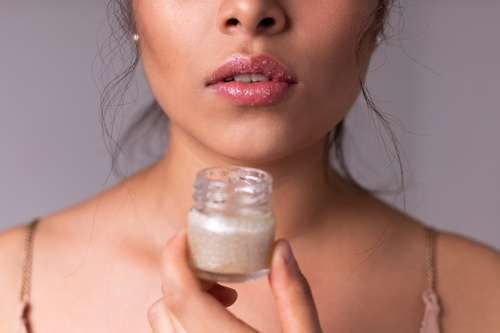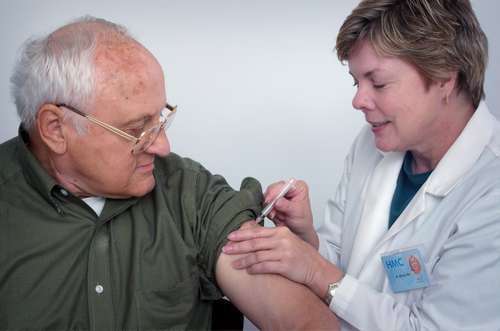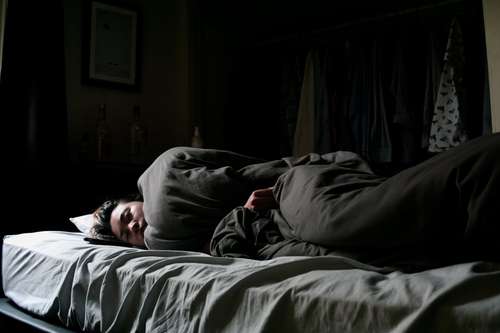Baking soda has been making waves on social media as a miracle ingredient for skin care, but is it really all it’s cracked up to be? Lately, we've seen countless posts and TikTok videos promoting baking soda skin care hacks, promising everything from clearer skin to reduced acne. At first glance, it might seem like an easy, at-home remedy to fight common skin issues. However, diving a little deeper reveals that these viral skin care trends might have more downsides than benefits.
It's amazing how a common household ingredient can suddenly become a beauty trend. Yet, as you scroll through your feed, you might notice that real skin care experts are warning against these practices. They underline that while baking soda may seem natural and harmless, it can actually disrupt your skin's natural pH balance and lead to long-term damage. So, before you jump on the bandwagon, it pays to know what you're getting into.
Understanding the Science Behind Baking Soda and Your Skin
Baking soda is sodium bicarbonate, a compound that's been used for decades in cooking and cleaning. But when it comes to skin care, the story gets a bit more complicated. Experts explain that our skin has a delicate acid mantle—a thin, protective layer that comes with a slightly acidic pH to ward off harmful bacteria. Introducing a highly alkaline substance like baking soda can disrupt this balance.
Many popular skin care hacks suggest mixing baking soda with water to create a paste for exfoliating or controlling oil, but this can strip away essential moisture and lead to irritation. In some cases, repeated use has been linked to rashes and even permanent damage. Imagine using a harsh detergent on a delicate fabric; that’s exactly what’s happening when you compromise your skin’s natural barrier.
When enthusiasts share baking soda beauty tips, it might be tempting to believe that natural equals safe. However, it’s essential to remember that even natural ingredients can have adverse effects if not used correctly. Think of it like every superhero movie: every power has its weakness.
Viral Skin Care Trends: The Dangers Lurking Behind Baking Soda Skin Care
The rise of viral skin care trends has left many searching for quick solutions to their skin concerns. A quick look at social media will show you posts with claims of instant brightening and acne miracles using baking soda. But experts caution that these shortcuts often overlook the importance of safe skin care practices.
Many users claim that applying baking soda to their face has given them a clear, radiant complexion, but this comes with a caveat: not every skin type reacts the same way. What works on one person might cause severe irritation or even worsen skin conditions for others. Our skin, like a unique fingerprint, requires a careful balance of hydration and natural oils—something that baking soda can easily upset.
Skin care expert advice consistently emphasizes the importance of testing products on a small area first. Unfortunately, the viral hype around baking soda for skin encourages skipping this crucial step. The dangers of using baking soda topically are compounded by the fact that many people apply it without any understanding of their skin's needs.
It’s no wonder that many celebrities and licensed dermatologists have publicly criticized these harmful skin care trends, urging their followers to seek out treatments backed by science rather than fleeting social media fads.
Expert Recommendations: What to Use Instead of Baking Soda
When you’re facing skin issues, the first impulse might be to try an at-home remedy. However, trusted skin care experts recommend alternatives with proven results. Ingredients like salicylic acid and retinol are often cited as effective treatments for acne and uneven skin tone.
Salicylic acid, for instance, is a go-to component in many over-the-counter acne treatments. It works by exfoliating the skin gently and unclogging pores without disturbing the pH balance as much as baking soda can. Similarly, retinol is celebrated for its anti-aging properties and ability to stimulate collagen production, making it the cornerstone of more advanced skincare routines.
You might be wondering, can natural skin care hacks ever be safe? The answer is yes—but they must be used in the right context and with plenty of caution. A lot of the buzz around baking soda skin care comes from a misguided notion that natural always means harmless. Expert skin care tips remind us that even natural approaches need to be scientifically validated before you swap out your current routine.
The advice from dermatologists often focuses on how to treat acne without inflicting damage. They suggest using specially formulated cleansers and treatment products that have been rigorously tested and proven to maintain your skin’s natural environment. In other words, finding a balance is key to avoiding common skin care mistakes.
Real-Life Experiences and the Call for Caution
There’s been an influx of personal stories online where individuals initially enjoyed temporary improvements with baking soda for skin, only to suffer from long-term irritation and breakouts. These anecdotes are not just mere complaints; they’re cautionary tales urging us to approach these hacks with skepticism. It’s similar to buying a trendy gadget that looks cool but turns out to be more trouble than it’s worth in the long run.
Some users have shared experiences where their skin turned dry and sensitive after repeated use, while others faced more severe reactions. The key lesson to take away is that safe skin care practices should always be based on a clear understanding of how each ingredient affects your skin. Just because a product is trending on TikTok doesn’t guarantee it’s the best choice for your face.
When you reflect on these stories, the take-home message is simple: proceed with care. Instead of risking harm with unverified treatments, we recommend sticking to products that have undergone clinical testing and bear the seal of genuine dermatological support.
Balancing Innovation with Safety in Skin Care
Innovation in beauty and skin care is exciting, and there’s certainly room for new ideas and natural ingredients to make an impact. However, the current frenzy around baking soda skin care highlights the importance of balancing innovation with scientific evidence. Instead of getting swept away by viral trends, it's wise to research and consult professionals when introducing any new product into your routine.
Always remember that trends come and go, but your skin’s health is a long-term investment. Adopting expert skin care tips isn’t about dismissing the allure of natural remedies—it’s about ensuring that what you use is safe and effective.
If you’re looking for skin care hacks that really work, prioritize products with proven benefits. Social media may make things look appealing, but nothing beats advice that’s been vetted by reputable dermatologists and peers in the skincare community.
Ultimately, safer skin care practices are your best bet when navigating the maze of beauty trends. Don’t let the hype convince you to make decisions that could compromise your skin’s wellbeing in the long run!
In conclusion, while baking soda might seem like a quick fix amid viral skin care trends, the potential for harm far outweighs the benefits. With expert guidance favoring ingredients like salicylic acid and retinol, it's clear that a balanced, scientifically backed approach is essential. So next time you consider trying a new skin care hack, think twice and look for trusted advice—you deserve nothing less than the best for your skin!




